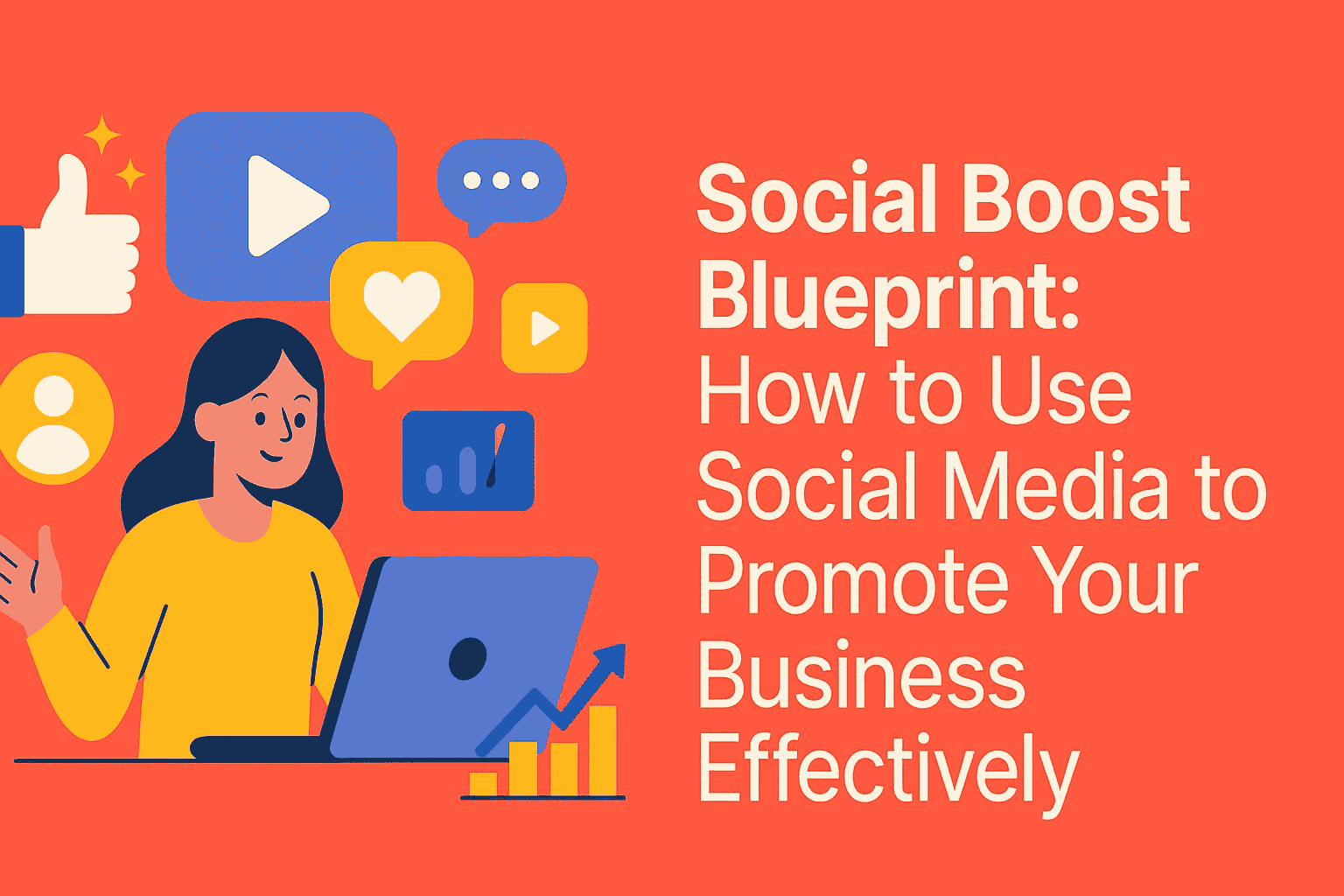Struggling to get results? Discover why setting a clear social media goal changes everything.
Social media is one of the most powerful tools for promoting any business — whether you’re a local shop, a startup, or an online brand. It helps you reach the right people, build trust, and turn followers into loyal customers. But to see real results, you need the right strategy.
Here’s a simple, effective guide on how to use social media to promote your business — broken down into clear, brief bullet points.
🎯 1. Know Your Goal Before You Post
Every successful social strategy begins with clarity.
Brief Key Points:
- Decide whether you want brand awareness, engagement, leads, or sales
- Align your content with business goals
- Track what matters most (followers, website clicks, conversions)
👉 Why it matters: Your strategy becomes focused and results-driven.
👥 2. Identify Your Target Audience
You can’t speak to everyone — nor should you.
Brief Key Points:
- Understand your ideal customer’s age, interests, and problems
- Find out which platforms they use the most
- Study what type of content they engage with
👉 Insight: The better you know your audience, the easier it is to connect with them.
📱 3. Choose the Right Social Platforms
Instead of being everywhere, be where your audience spends time.
Platform Breakdown:
- Instagram: Visuals, reels, stories, lifestyle brands
- Facebook: Local businesses, groups, ads
- TikTok: Creative short videos, younger audiences
- LinkedIn: Professionals, B2B marketing
- YouTube: Tutorials, vlogs, long-form content
👉 Tip: Start with 1–2 platforms and master them.
✍️ 4. Create Engaging and Valuable Content
People follow brands that educate, entertain, or solve a problem.
Content That Works:
- Reels, short videos
- Behind-the-scenes clips
- Customer reviews
- Tips, tutorials, how-to posts
- Product demos
- Infographics and carousels
👉 Key Point: Content should speak to your audience’s needs.
📆 5. Be Consistent With Posting
Consistency builds brand memory and trust.
Brief Key Points:
- Create a weekly posting schedule
- Use a content calendar to plan in advance
- Maintain a consistent voice and style
👉 Reminder: You don’t need to post daily — 3–4 quality posts per week is enough.
🗣 6. Engage With Your Followers
Social media is a conversation, not a broadcast.
Engagement Actions:
- Reply to comments and messages
- Ask questions to spark interaction
- Use polls, stories, and Q&As
- Appreciate loyal followers
👉 Benefit: Engagement builds community and trust.
💰 7. Use Paid Advertising to Expand Reach
Paid ads help you reach more people faster.
Brief Key Points:
- Run targeted ads based on interests, location, or behavior
- Promote best-performing posts
- Use retargeting to re-engage website visitors
👉 Outcome: Faster results, more leads, and higher visibility.
⭐ 8. Encourage User-Generated Content (UGC)
Your customers can be your biggest promoters.
Ways to Use UGC:
- Share customer photos and reviews
- Run hashtag challenges
- Encourage customers to tag your brand
👉 Impact: UGC builds social proof and authenticity.
📊 9. Track Performance and Adjust Your Strategy
Data helps you understand what’s working.
Metrics to Track:
- Engagement rate
- Reach and impressions
- Click-through rate
- Follower growth
- Conversions or inquiries
👉 Key Point: Optimize based on results, not assumptions.
🌟 Final Thoughts
Using social media to promote your business isn’t complicated — you just need a smart, consistent approach. Focus on understanding your audience, posting engaging content, interacting genuinely, and tracking results. Over time, your brand presence grows, your audience strengthens, and your business expands.
Start today — your next customer might discover you from your very next post.

Leave a Reply